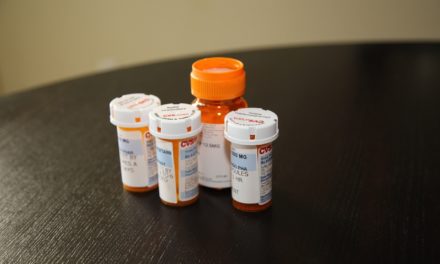For the second consecutive year, total payments to care for individuals living with Alzheimer’s or other dementias are projected to surpass a quarter of a trillion dollars ($277 billion), which includes an increase of nearly $20 billion over last year, according to data reported in the Alzheimer’s Association 2018 Alzheimer’s Disease Facts and Figures report released Tuesday.
An accompanying special report titled, “Alzheimer’s Disease: Financial and Personal Benefits of Early Diagnosis,” highlights new economic modeling data indicating early diagnosis of Alzheimer’s during the mild cognitive impairment (MCI) stage of the disease could save the nation as much as $7.9 trillion in health and long-term care expenditures. The report also highlights personal benefits of early diagnosis for individuals and families.
New findings from the report show the growing burden of Alzheimer’s on people living with the disease, their families and caregivers, as well as society at large. The number of older Americans is growing rapidly, so too is the number of people living with Alzheimer’s and the subsequent impact to the nation’s economy. By 2050, the total cost of care for Alzheimer’s is projected to increase to more than $1.1 trillion.
“This year’s report illuminates the growing cost and impact of Alzheimer’s on the nation’s health care system, and also points to the growing financial, physical and emotional toll on families facing this disease,” said Keith Fargo, Ph.D., director of scientific programs and outreach for the Alzheimer’s Association. “Soaring prevalence, rising mortality rates and lack of an effective treatment all lead to enormous costs to society, Alzheimer’s is a burden that’s only going to get worse. We must continue to attack Alzheimer’s through a multidimensional approach that advances research while also improving support for people with the disease and their caregivers.”
Given the long duration of this disease, the strain on Alzheimer’s caregivers can last several years and produce serious declines in caregiver physical, emotional and financial well-being. In 2017, 16 million Americans provided an estimated 18.4 billion hours of unpaid care in the form of physical, emotional and financial support – a contribution to the nation valued at $232.1 billion. The difficulties associated with providing this level of care are estimated to have resulted in $11.4 billion in additional healthcare costs for Alzheimer’s and other dementia caregivers in 2017.
Mortality from Alzheimer’s disease continues to rise. While deaths from other major causes continue to decrease, new data from the report shows that deaths from Alzheimer’s disease have more than doubled, increasing 123 percent between 2000 and 2015. For context the number of deaths from heart disease – the number one killer in America – decreased 11 percent.
“Discoveries in science mean fewer people are dying at an early age from heart disease, cancer and other diseases,” said Fargo. “Similar scientific breakthroughs are needed for Alzheimer’s disease, and will only be achieved by making it a national health care priority and increasing funding for research that can one day lead to early detection, better treatments and ultimately a cure.”







